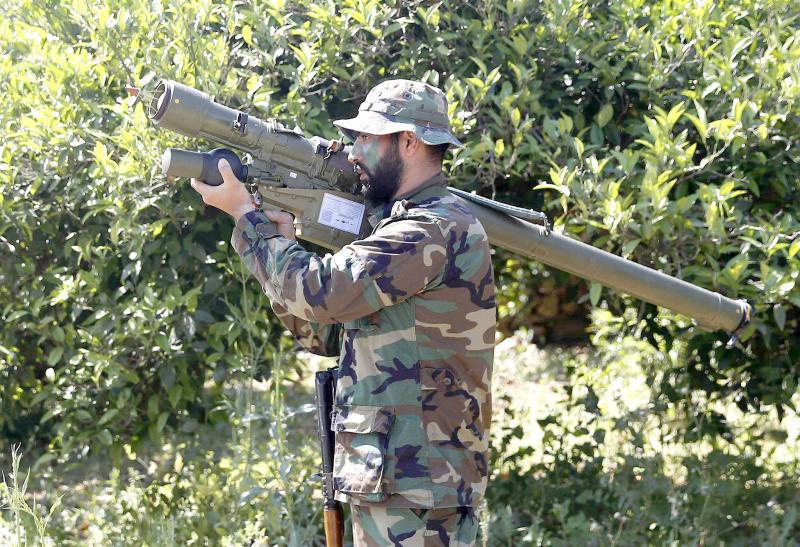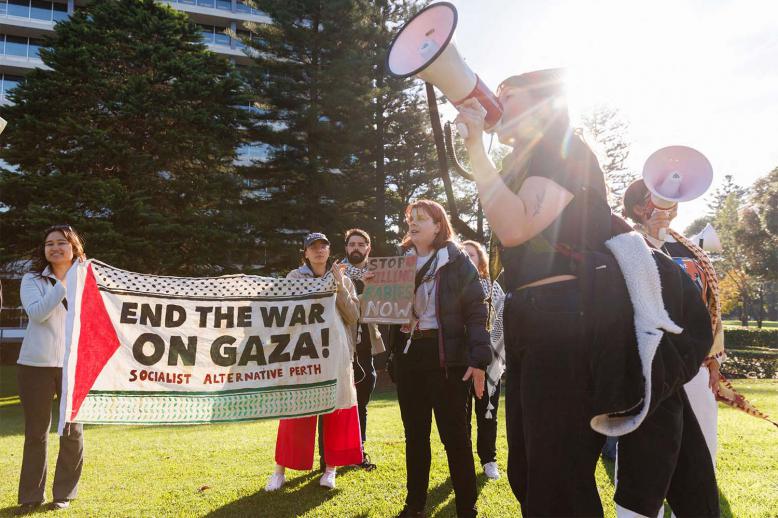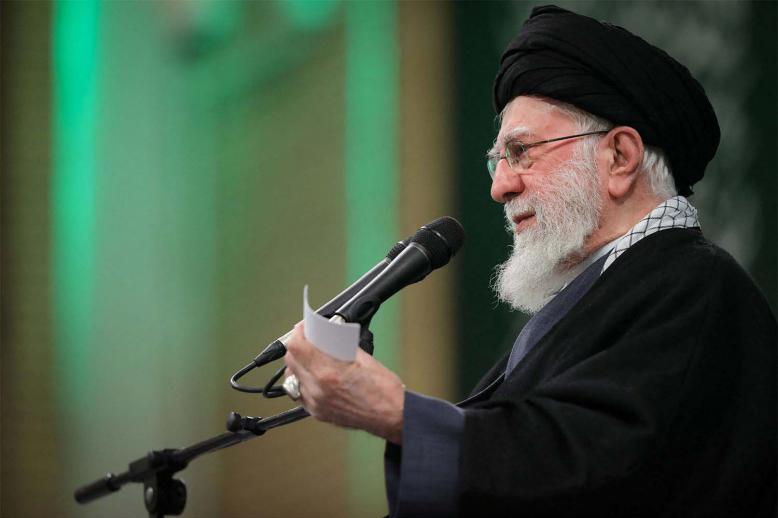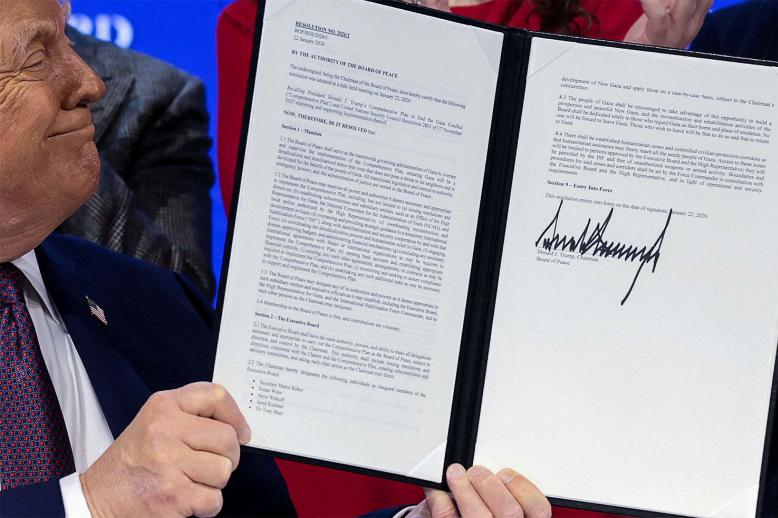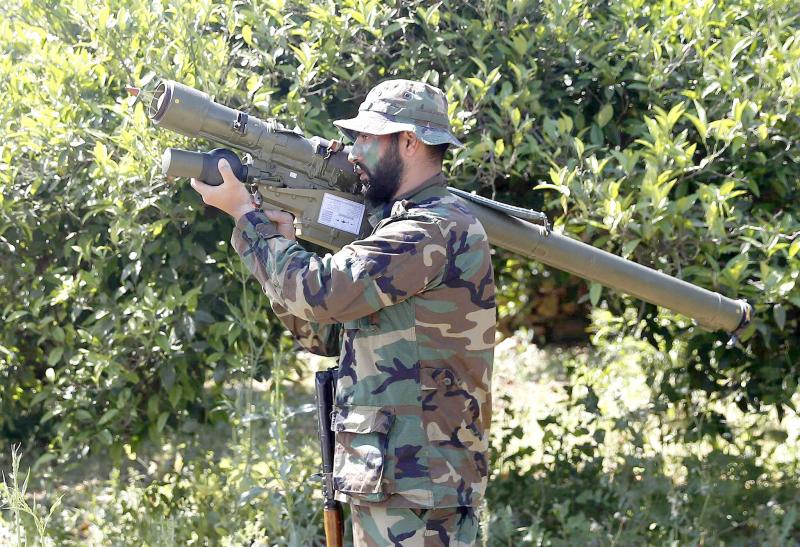Hezbollah’s internal gains and external operations place all of Lebanon at risk
Hezbollah’s international activities, combined with its growing influence over Lebanon’s domestic politics, are fuelling a rift between the country and its regional and Western partners.
Allegations against the Lebanese state, accusing it of actively covering Hezbollah’s alleged narcotics smuggling operations, are further isolating Lebanon, entrenching it deeper within Iran’s self-styled “axis of resistance” and placing the country at risk.
In the June edition of Foreign Policy, analyst Emanuele Ottolenghi, of the Foundation for Defense of Democracies, described efforts by the Lebanese Embassy in Paraguay to block the extradition of suspected Hezbollah financier Nader Mohamad Farhat to the United States. Ottolenghi wrote that Farhat was arrested for his alleged role in a $1.3 million drug money-laundering scheme.
Farhat was also believed to be a member of the Business Affairs Component, the branch of Hezbollah’s External Security Organisation responsible for the Party of God’s finance and drug trafficking operations.
If correct, this would mark a dramatic break with Lebanon’s longstanding neutrality policy with regard to foreign affairs.
Hezbollah has past form here. Earlier this year, Project Cassandra, the US Drug Enforcement Administration’s initiative to check Hezbollah’s narcotics revenue streams, named several of the group’s figures suspected to have been active in international cocaine smuggling and money laundering rings.
Hezbollah’s suspicious international activities go beyond narcotics. In May, Morocco accused the group of training and arming the separatist Polisario Front movement, leading the North African country to sever ties with Hezbollah’s sponsor, Iran.
These are hardly isolated incidents. In 2013 and 2016, the European community and Gulf countries added Hezbollah’s armed branch to their list of terror organisations following its involvement in the Syrian conflict, as well as its alleged terrorist plots in Europe and the Gulf.
Curiously, despite its growing domestic political success, Hezbollah’s international activities run counter to Lebanese foreign policy. Since 2012, Lebanon has pursued a dissociation policy, distancing the country from the various regional crises, most notably that in Syria. The pledge was essential if Lebanon was to maintain some degree of coexistence between the rival factions in the country, principally those aligned with Iran and Syria, headed by Hezbollah, and those espousing a Western or Arab approach, led by Lebanese Prime Minister Saad Hariri’s Future Movement.
However, the involvement of Hezbollah in regional and international conflicts is undermining that balancing act, not least after the group made notable gains in May’s elections. Now, with its allies in the Syrian Nationalist Progressive Party, Amal, the Ba’athist and Marada Movements, Hezbollah’s coalition controls 45 of the parliament’s 128 seats.
Electoral success not only bolstered Hezbollah’s domestic position, it ensured the political return of figures close to Syrian President Bashar Assad.
Electoral success for Hezbollah and its allies signals the consolidation of power by a pro-Syrian and pro-Iranian group, gained directly at the expense of Hariri.
Hezbollah’s electoral gains put Lebanon increasingly in the line of fire. “The situation is becoming very serious and dangerous for Lebanon and there should be a perfect consensus around the country’s neutrality,” Lebanese Health Minister Marwan Hamadeh warned in an interview with The Arab Weekly.
Lebanon is neither Iran nor Syria. It is too small and has too many links through its diaspora to the West and Arab countries. Its political system is fragmented across sectarian lines with strong identification with the rest of the world. For the Lebanese state to align itself with Hezbollah risks much that has been achieved over the country’s recent past.
Mona Alami is a French-Lebanese analyst and a fellow at the Rafik Hariri Center for the Middle East of the Atlantic Council. She lives in Beirut.
This article was originally published in The Arab Weekly.


